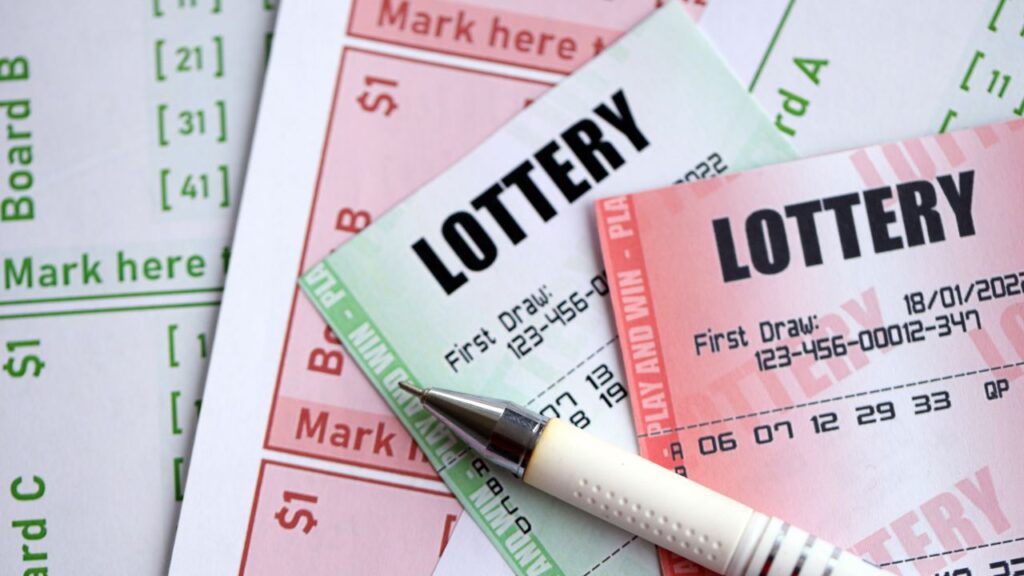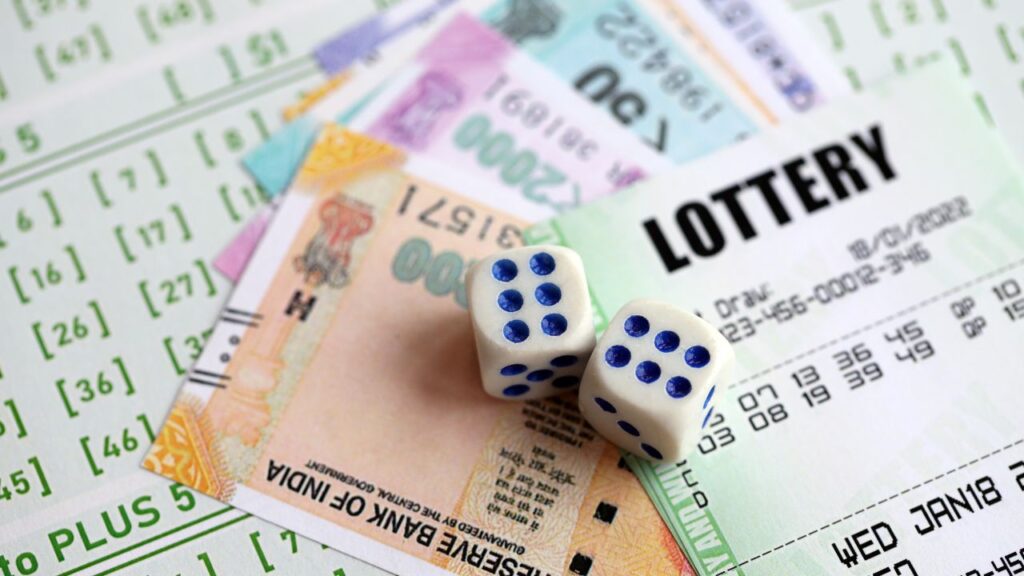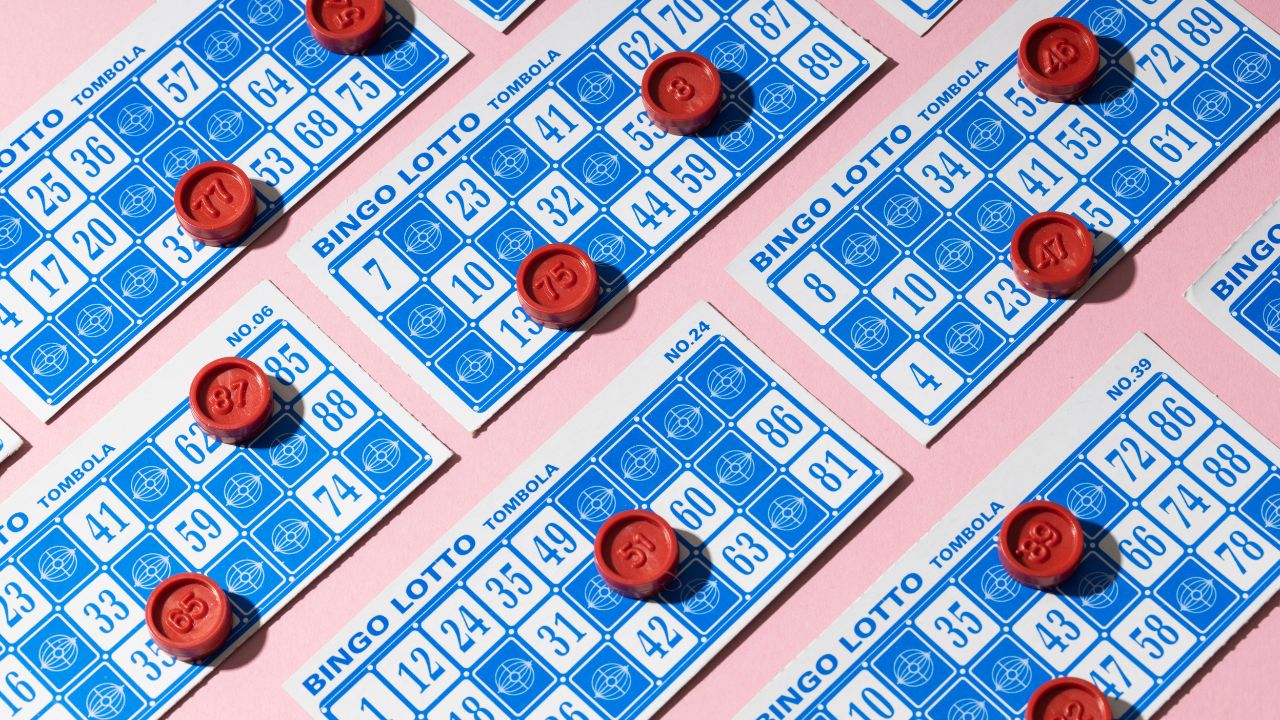“Is it better to trust a machine or your lucky birthday?”
That’s the question millions of lottery players ask every day. Whether you’re playing Powerball, Mega Millions, or EuroMillions, the big debate boils down to this: Quick Pick vs. Personal Numbers.
Some swear by computer-generated randomness. Others cling to meaningful dates, lucky charms, or repeated combinations. But what does the data actually say? Do Quick Picks really win more often, or is it all a numbers game either way?
In this guide, we dive deep into official lottery statistics, winner case studies, expert insights, and surprising myths to finally answer: Which method gives you the best shot at a jackpot?
🎯 Want Smarter Lottery Picks?
Stop guessing and start strategizing. Discover the top-rated tools that serious players use to choose their numbers more intelligently.
👉 Find the Best Lottery Prediction Software Here
🧩 What Are Quick Picks and Personal Numbers?
In the world of lottery games, how you pick your numbers can be just as personal as the decision to play. Players tend to fall into one of two camps: those who let the machine choose for them—and those who insist on doing it themselves. But what’s really the difference between Quick Picks and Personal Numbers, and why do people feel so strongly about them?
What Is a Quick Pick?
A Quick Pick is a ticket where the lottery terminal or app randomly generates your numbers for you. It uses a certified random number generator (RNG), meaning you get a totally unique combination every time you play. This option is fast, easy, and widely available in nearly every major lottery, including Powerball, Mega Millions, and EuroMillions.
Quick Picks are especially popular among casual players or those who play on impulse—think gas station ticket buyers or people entering last-minute online. In fact, lottery officials estimate that 70–80% of all lottery tickets in the U.S. are Quick Picks. And yes, that includes a majority of jackpot-winning tickets.
What Are Personal Numbers?
Personal Numbers, also called self-picked or manual selections, are chosen by the player. These often carry emotional or symbolic meaning—birthdays, anniversaries, lucky numbers, or even recurring dreams. Some players have specific sequences they play every week, while others tweak their picks based on intuition, numerology, or recent draw history.
The appeal here is control. It’s a personal ritual for many players, even if the odds don’t change. Some also believe in “hot” or “cold” number patterns, despite the randomness of each draw.
Which Is More Popular?
Quick Picks dominate the global lottery scene in terms of volume. According to Powerball and Mega Millions reports, over three-quarters of tickets sold are computer-generated. EuroMillions and UK National Lottery figures also show a growing preference for “Lucky Dip” tickets (the UK’s term for Quick Picks), especially with online players.
That said, personal numbers remain popular among frequent and emotional players, especially those who have played the same set for years. Some even fear switching, worried that their numbers will finally hit the one week they don’t play them.
Why the Debate Persists
The reason this topic sparks debate is that lottery playing isn’t just mathematical—it’s emotional. Quick Picks offer speed and randomness. Personal numbers offer sentiment and superstition. One side trusts algorithms; the other trusts gut feelings.
Both methods are equally valid—and equally random in outcome. But the human connection to numbers, luck, and hope keeps the conversation going. It’s not just about odds—it’s about belief, ritual, and identity.
Still picking numbers blindly?
👉 Discover this data-driven lottery tool trusted by thousands of consistent players.
🧩 Do Quick Picks Actually Win More Often?

It’s a question nearly every lottery player asks at some point: Are Quick Picks actually luckier? With jackpots soaring into the hundreds of millions, it’s no surprise people want any edge they can find—even if it comes down to how numbers are chosen.
So let’s break it down: what do the real statistics say about the success of Quick Picks across major lotteries like Powerball, Mega Millions, and EuroMillions?
The Stats: What the Numbers Actually Show
According to official data from U.S. lottery organizations:
- Powerball: Around 70–80% of Powerball tickets are Quick Picks—and approximately 70–80% of jackpot winners used Quick Picks.
- Mega Millions: Similar trends apply, with a large share of winning tickets coming from randomly generated numbers.
- EuroMillions (UK & Europe): Reports show that nearly half of UK winners used a “Lucky Dip” (the British term for Quick Pick).
These numbers clearly suggest that Quick Picks win in proportion to how often they’re used—not more, not less.
Proportional Wins, Not Preferential Luck
The critical takeaway is this: Quick Picks win more often because they’re played more often. It’s a volume game. If 75% of all tickets are Quick Picks, it’s statistically likely that roughly 75% of winners used Quick Pick. The odds for each ticket remain fixed regardless of how numbers are selected.
Mathematically speaking, a computer-generated ticket and a self-chosen one have exactly the same chance of winning. There is no algorithmic bias toward or against Quick Picks in the draw itself. Every combination has an equal shot, whether you chose it or not.
Quick Pick in Action: The $768 Million Example
One of the most famous Quick Pick wins happened in 2019, when Manuel Franco of Wisconsin scored a massive $768 million Powerball jackpot—one of the largest in U.S. history. His ticket? A Quick Pick.
He didn’t study patterns. He didn’t have a secret system. He bought a random ticket from a Speedway gas station—and walked away a multimillionaire. His story became a symbol of the “pure luck” nature of lottery success.
What the Data Tells Us
There’s no evidence that Quick Picks are “luckier,” but they certainly don’t hurt your chances either. They win just as often as they’re played—no more, no less. It’s a convenient option for players who don’t want to overthink their numbers, and historically, it’s led to plenty of jackpot success stories.
Don’t leave your numbers to chance—get smarter with your picks.
📊 Explore Lotto Champ’s proven algorithm today.
🧩 Personal Number Wins: Are Lucky Numbers Really Lucky?

From birthdays and anniversaries to numbers found in dreams or fortune cookies, many lottery players believe their personal numbers carry special energy. While Quick Picks dominate in volume, self-picked numbers have carved out a legendary place in lottery lore—especially when they actually hit. But is there any real advantage, or is it just emotional bias?
Legendary Wins from Personal Numbers
Take Maureen Smith and David Kaltschmidt, one of three winners who split the record-setting $1.586 billion Powerball jackpot in 2016. Maureen had played the exact same numbers for over 30 years—a mix of family birthdays and personally meaningful digits. Her commitment paid off in a big way when her faithful combination finally struck gold.
Then there’s Charles W. Jackson Jr., a retiree from North Carolina who won $344.6 million using numbers printed on a fortune cookie his granddaughter had given him. He liked the quirky combo and kept playing it regularly. One day, that seemingly random cookie cracked open the door to life-changing wealth.
These real-life wins give credibility to the belief that personal numbers can lead to massive payoffs—but is it the numbers or the narrative that really drives the feeling of “luck”?
The Psychology Behind Lucky Numbers
People are emotionally wired to find patterns and meaning in randomness. Choosing your own numbers—especially those tied to loved ones or positive memories—makes the experience feel more personal, more magical. You’re not just playing; you’re investing hope into something that represents your life story.
It’s no surprise that many long-time players stick with the same set of digits week after week. The idea that your numbers “are due” or “must hit eventually” offers emotional momentum—even though, statistically, each draw is completely independent.
What Experts Say About Emotional vs. Statistical Value
Mathematicians and lottery officials consistently emphasize that personal numbers hold no statistical advantage. Each draw is random, and every possible number combination carries the exact same odds—whether you select it manually or a computer does.
However, some experts acknowledge the emotional utility of choosing your own numbers. Personal picks give players a stronger connection to the game, make the experience more engaging, and offer a sense of control—even if it’s just psychological.
So while your anniversary or your dog’s birthday doesn’t improve your odds, it might improve your satisfaction with the process. And in a game where hope is half the fun, that’s not insignificant.
Play to win, not just to hope.
🔥 Use Lotto Champ to sharpen your lottery strategy with AI-based predictions.
🧩 The Odds Don’t Change—But Your Experience Might

Whether you tap “Quick Pick” at the counter or handwrite a ticket with your kid’s birthday numbers, the odds of hitting the jackpot remain exactly the same. No method—random or personal—can change the raw probability. But here’s the twist: while the math stays fixed, your emotional experience as a player can be very different depending on how you choose your numbers.
A Look at the Numbers: The Odds Are Set in Stone
In major lotteries like Powerball and Mega Millions, the odds of winning the jackpot are staggeringly steep—1 in 292.2 million for Powerball, 1 in 302.6 million for Mega Millions. EuroMillions isn’t far behind at roughly 1 in 139 million.
These odds are the same for every ticket, no matter how the numbers were selected. Whether they’re chosen by a random number generator or drawn from your wedding date, your chance of winning doesn’t increase or decrease. The lottery is a game of pure chance, with no memory, no bias, and no “due” numbers.
Choosing Numbers Doesn’t Change the Odds—But It Does Change You
Here’s where things get personal. Lottery players often form emotional habits based on how they play:
- Quick Pick players tend to be more spontaneous. They might buy tickets occasionally, go with the flow, and rely on the element of surprise.
- Personal number players are more ritualistic. They have a “lucky” set they feel bonded to, and skipping a week or switching it up can cause real stress—even if the odds don’t support that anxiety.
Neither is better from a math standpoint, but from a mindset standpoint, they create very different user experiences.
Pros and Cons of Each Approach
Quick Pick Pros
- Fast and effortless
- Truly random, helping avoid overused patterns (e.g. birthdays, common number clusters)
- Emotionally low-pressure (no regret if you skip a week)
- Ideal for first-time or casual players
Quick Pick Cons
- No personal connection to the numbers
- Easy to forget or lose track of past picks
- May feel impersonal or purely mechanical
Personal Number Pros
- Emotional investment makes the game more exciting
- Easy to track long-term results and feel a sense of ownership
- Ritualistic play can be comforting or even spiritual
- Great for players who enjoy “lucky charms” or numerology
Personal Number Cons
- May lead to confirmation bias and superstition
- Birthdates limit numbers to 1–31, which are often overused—potentially increasing prize splits
- Emotional stress if your numbers hit on a week you didn’t play
Ultimately, your method won’t move the needle on odds—but it will affect how you feel every time those balls drop.
Looking for an edge in your next draw?
✅ Check out the Lotto Champ software here and get a winning mindset.
🧩 Common Myths About Lottery Number Selection

When it comes to picking lottery numbers, myths and misconceptions run rampant. From “hot” numbers that are due to hit, to the belief that Quick Picks are somehow cursed, players have invented countless theories to feel more in control of a game that’s fundamentally random. But do any of these ideas actually hold water? Let’s break down some of the most common myths—and what the math really says.
❌ Myth: “Hot” and “Cold” Numbers Increase Your Chances
Some players religiously track past draws, looking for “hot” numbers that have been drawn frequently, or “cold” numbers that haven’t hit in a while. The idea? That certain numbers are “due” or statistically more likely to appear next.
🔎 The truth: Lottery draws are independent events. The machine doesn’t remember what happened last week, and previous outcomes don’t influence future ones. Whether a number was drawn yesterday or not for a year, its odds are still the same in every draw. Chasing patterns may feel logical, but statistically, it’s no better than picking at random.
❌ Myth: Choosing Birthdays Improves Your Odds
Picking dates of birth—yours, your kids’, your anniversary—is one of the most popular number selection strategies. Players believe that numbers with personal meaning are somehow “luckier” or more likely to win.
🔎 The truth: While it may make the game more fun, birthdays limit your choices to numbers between 1 and 31. This narrows your pool and causes many players to overlap on the same combinations. So if those numbers do win, you’re more likely to split the prize with others. It doesn’t hurt your odds of winning—but it can shrink your share of the jackpot.
❌ Myth: Quick Picks Are Rigged or “Less Lucky”
Some players feel uneasy about leaving their fate to a machine, believing Quick Picks are either rigged against them or inherently unlucky compared to hand-picked numbers.
🔎 The truth: Quick Picks use certified random number generators (RNGs) that are designed to be unbiased and unpredictable. In fact, most major jackpot winners used Quick Picks—but that’s simply because most tickets sold are Quick Picks. There’s no rigging, and Quick Picks are just as likely to win as any self-picked combination.
🔍 Expert Debunking: Every Combo Has the Same Chance
Lottery officials and mathematicians are clear: every number combination has exactly the same odds of winning. Whether it’s 1-2-3-4-5-6, your anniversary date, or a Quick Pick jumble, the probability is unchanged.
Here’s what experts agree on:
- There is no memory in lottery draws—patterns are illusions.
- “Lucky” numbers are emotionally satisfying, but not statistically superior.
- The only thing that slightly increases your chance is buying more tickets—but even that offers minimal advantage against odds like 1 in 292 million.
In short: your best strategy is to play for fun, not with false hopes of finding a “secret system.”
Serious about hitting the jackpot?
🎯 See why Lotto Champ is the #1 choice for smarter number selection and lottery forecasting.
🧩 How to Maximize Your Lottery Strategy (Even If You Can’t Beat the Odds)
Let’s face it: the odds of winning a major lottery jackpot are astronomically low. But that doesn’t mean you can’t improve your experience, manage your expectations, or even increase your odds of winning something. While there’s no guaranteed formula to beat the system, there are smarter, more strategic ways to play—especially if you’re in it for the fun and not just the fantasy.
🎯 Make Playing Smarter—and More Enjoyable
Playing the lottery should never feel like a financial burden or an emotional rollercoaster. Here are ways to keep your play strategic and stress-free:
- Set a monthly play budget and treat it like entertainment—not investment.
- Use recurring number selections or saved favorites to simplify regular play.
- Choose games with better odds (e.g., scratch-offs, regional lotteries) for small wins.
- Pick numbers that make you feel good—whether they’re random or personal.
When fun is the goal, you’re already winning on some level—even if it’s not a jackpot.
📱 Use Tools That Make You a Smarter Player
Tech-savvy players can take advantage of tools that streamline the process and bring structure to their play:
- Lottery tracking apps help log your picks, monitor draw history, and set reminders.
- Wheeling systems allow you to play multiple combinations of your chosen numbers, improving the chance of winning smaller prizes (though not changing jackpot odds).
- Budgeting tools or spend caps (some built into apps) help you avoid overspending.
- AI-powered number generators can offer data-driven picks if you want a hybrid between Quick Pick and strategy.
Affiliate Opportunity: Promote lottery apps, subscription platforms, or budget-integrated number trackers here.
🔁 Consistency Can Be More Valuable Than Method
While choosing the “right” numbers won’t increase your odds, playing consistently might improve your chances of eventually hitting something. Many winners report having played the same game—or the same numbers—for years before winning a major prize.
Consistent play builds routine, reinforces discipline, and lets you track results over time. Just be sure to stay within your financial limits, and never chase losses.
🤝 Join a Lottery Pool or Syndicate
If your goal is to increase odds without spending more, consider joining a lottery pool. This could be a group of friends, coworkers, or even an online syndicate. Here’s how it works:
- Everyone contributes to a shared ticket fund.
- You collectively buy more tickets (boosting odds).
- Any winnings are split evenly among members.
While this does reduce individual payout size, it significantly improves the chance of hitting any prize, especially in lower-tier wins. Plus, there’s something exciting about winning (or even losing) as a group.
Affiliate Opportunity: Great spot to promote online lottery syndicate platforms or group-play ticket apps.
✅ Conclusion & Call to Action:
At the end of the day, whether you go with a Quick Pick or your favorite numbers, the odds stay exactly the same. What changes is how you feel about the ticket. So choose what makes the game fun for you—and always play responsibly. 🎯
👉 Want to increase your lottery IQ? Check out the best lottery prediction tools here.

